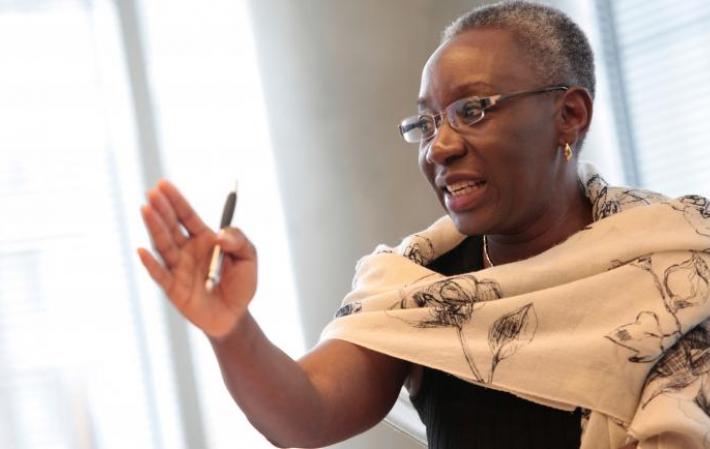
Sandra Pepera, Senior Associate and Director for NDI's Gender, Women and Democracy team.
On January 9th and 10th, the National Democratic Institute hosted the 21st Century Parties Conference in Brussels, Belgium. Party experts and assistance providers convened to discuss three important issues many parties struggle with around the globe: inclusion and citizen relations, ideology, and political party finance. The conversation was framed around the idea that democracy is a process, not an end goal. As former Secretary-General of the Spanish Socialist Workers' Party, Pedro Sánchez pointed out, “Democracy is always an unfinished building, it is always a work in progress….and we should see it as something that needs to evolve.” The following are outcomes from each of the three challenges discussed:
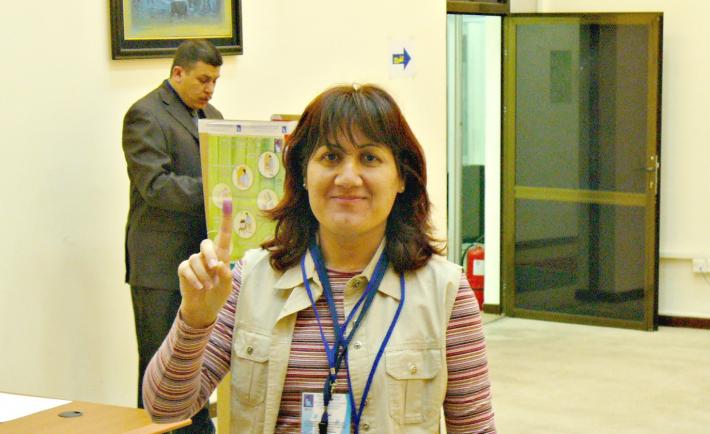
Ferdos Majeed voted in the Iraq parliamentary elections in 2005, her first time voting in a free and fair election.
Before 2003 Iraq was isolated from the world. The country possessed little knowledge of a democratic system, a functioning civil society, a multi-party political system or human rights, especially as they applied to women. As a lecturer at a large university in Iraq, I was speaking with young people every day who expressed their eagerness for freedom of speech. I kept hoping that we would have all of that one day, and I was looking to learn everything I could about democratic systems and human rights.
The Civic Update is a production of NDI’s Citizen Participation Team which highlights innovative practices, approaches and lessons from NDI programs. The January 2017 video edition, Art for Campaigning, focuses on how NDI has supported local partners to use art as part of their organizing. It includes examples from the Central African Republic, Guatemala, Kosovo, Macedonia, Nepal and Nigeria.
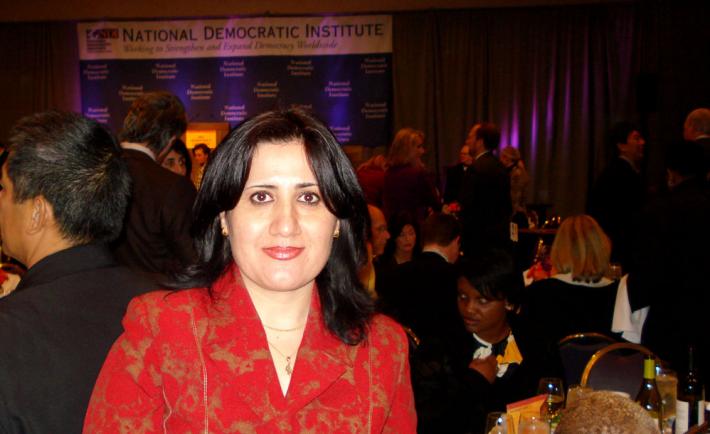
Ferdos Majeed was selected the first Andi Parhamovich Fellow in 2008. Ferdos worked with closely with Andi in Iraq so her selection was a fitting tribute.
January 17th, 2017, marks the 10th anniversary of the death of NDI Baghdad employee Andi Parhamovich and three security personnel during an ambush in Baghdad, Iraq. While there is no way to adequately respond to such a tragedy, the Parhamovich family hoped to find a way to continue one of Andi’s passions: increasing women’s participation in politics. The Andi Parhamovich Fellowship was created so that young women from all parts of the world would be able to take advantage of resources and connections in Washington D.C. that they could then take home to their countries and move forward Andi’s goals.
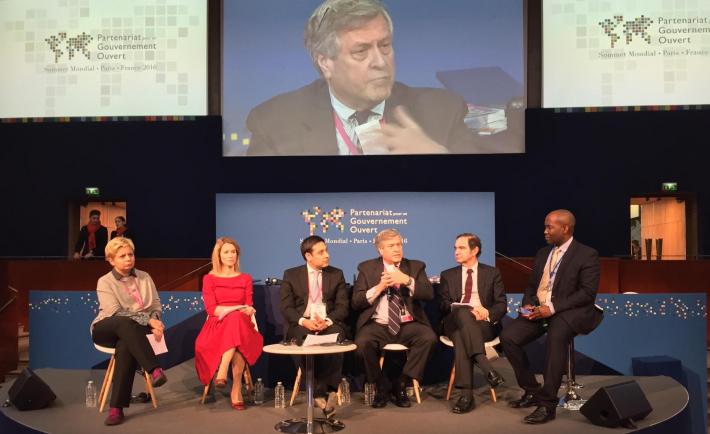
At the OGP Summit in Paris, NDI President Ken Wollack joins legislative and civil society leaders from Chile, Colombia, Estonia, Serbia, and South Africa to discuss the role of legislatures in OGP.
Since its launch in 2011, many have urged the Open Government Partnership (OGP) to expand beyond narrow definitions of the term "government." Legislators, mayors, and others argued that OGP’s transformational potential was tied in part to its ability to accommodate different branches and levels of government -- not only the executive, as is the case in many member countries. A truly open government includes an accountable executive branch, trusted legislatures, and responsive governance at all levels. This was an ambitious vision, but many argued that OGP’s ability to deliver better democracy and better governance was tied to its continued growth and expansion. The OGP Summit in Paris, which took place last month and convened hundreds of open government champions and activists from around the world, clearly indicated that OGP is beginning to deliver on this ambitious agenda.
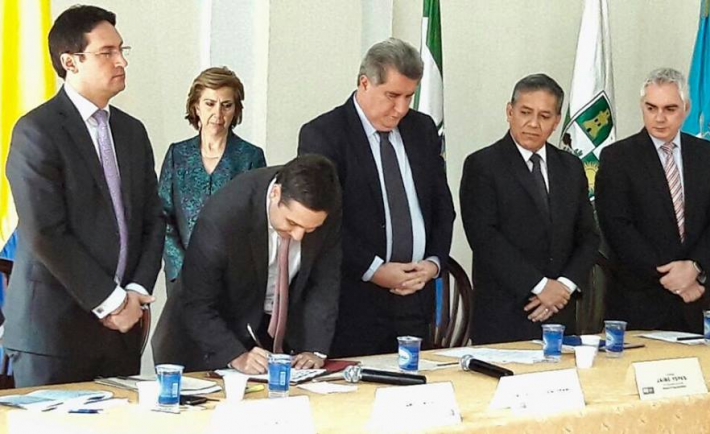
The president of the senate signs the first action plan for a transparent congress Credit: Press Office of the Honorable Senate of the Republic of Colombia, Bogotá, Colombia. November 2016.
On November 30 in Constitution Hall of the Honorable Congress of the Republic of Colombia, an important event took place for the country’s democracy, particularly its legislative institutions. Leaders from the Senate and Chamber of Representatives came together to publicly present the first Open Parliament Action Plan of the Colombian Congress, which lays a series of benchmarks toward making the congress more visible and accessible to citizens. Colombia’s Open Parliament Action Plan is notable regionally and internationally – it is the third such plan developed in Latin America and the sixth in the world.
For our bipartisan dinner, we developed a video compilation, which asked our partners one single, powerful question: “What does democracy mean to you?” The video responses we collected included both a one word answer and a 15 second explanation on the meaning of democracy. The result was amazing.
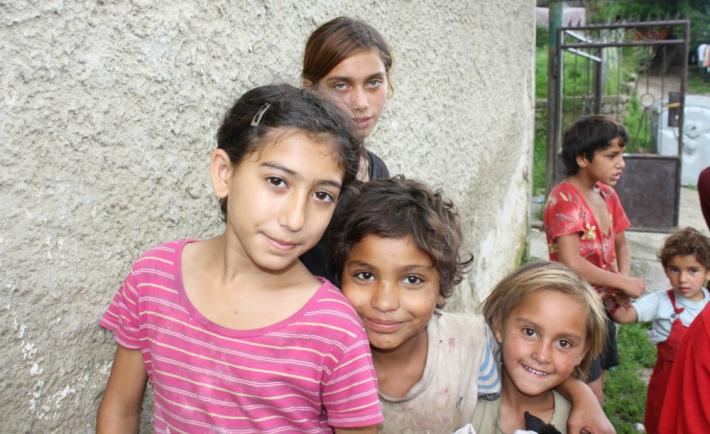
Recent anti-Roma speech throughout Europe, including in Slovakia, negatively impacts Roma children like these, photographed by Nadezhda Mouzykina in a segregated Slovak settlement.
Editor's Note: Stanislav Daniel, NDI Roma Political Participation Program Alumnus and Coordinator of Romani Early Years Network, contributed to this piece.
Slovakia’ ruling SMER party convened its annual congress in December. Although a social democratic party now in power for a number of years, the congress had the unfortunate political trappings of a populist, right-wing gathering. Instead of pronouncing on poverty and inequality and other issues important to all citizens, the party chose instead to scapegoat Slovakia’s most vulnerable constituency—the Roma—as public support for a far-right political alternative grows.
Haiti is a country of natural beauty and vast potential, but something is always getting in the way of its progress. As the first independent nation in Latin America, and one of the oldest democracies, Haiti has a proud tradition on which to build. However, in the wake of the world’s only successful slave revolt and its declaration of independence in 1803, nations refused to recognize Haiti’s independence for decades, fearful of encouraging revolt among their own slave populations.
Twelve young Latin American political leaders and activists recently gathered in Guatemala for an NDI-led workshop on youth political participation. Conversations ranged from what motivates youth to get involved in politics, to how sociocultural norms about youth affect their work, and what tactics youth have used to elevate their political voices in their home countries of El Salvador, Colombia, Guatemala, Honduras, Nicaragua and Mexico. Amidst widespread myths about youth political apathy, these diverse young activists represent a generation that is motivated to build more inclusive, democratic societies.